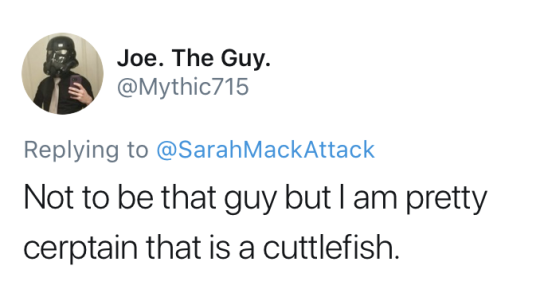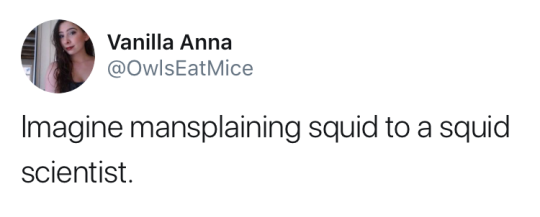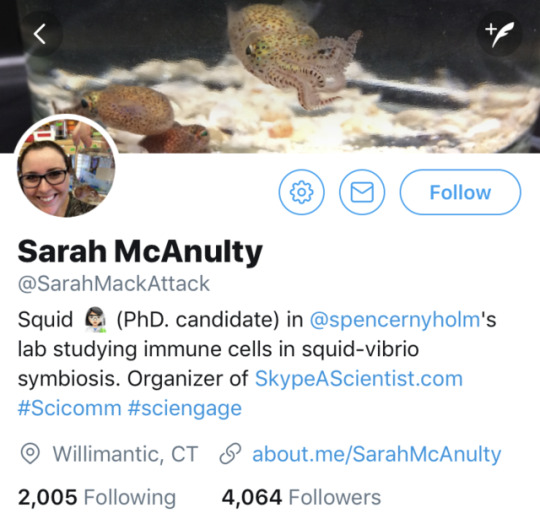Just some stuff that brings this lil’ lemon joy. Some goofy, some heartmushy, some vengeful, some cringe. They/he/fae. Over 18.
Last active 4 hours ago
Don't wanna be here? Send us removal request.
Text
“Nobody’s going to want to sit on high-speed rail for fifteen hours to get from New York City to LA.”
Me. I will sit on high-speed rail for fifteen hours. I’ll sit on it for days. I’ll write and read and nap and eat and then do it all over again. I’ll stare out the windows and see America from ground level and not have to drive. I’ll see the Rockies and the deserts and cornfields and the Mississippi River and your house and yours and yours too. I’ll make up stories in my head about the small towns I see as we go along. I’ll see the states I’ve yet to see because driving or flying there is a fucking slog and expensive to boot. I’ll enjoy the ride as much as the destination. And then I’ll do it all over again to come the fuck home.
157K notes
·
View notes
Text
I'm here to lick asses and kick names, and buddy, my legs are asleep
72 notes
·
View notes
Text
I low-key love the fact that sci-fi has so conditioned us to expect to be hanging out with a bunch of cool space aliens, that legitimate, actual scientists keep proposing the most bizarre, three-blunts-into-the-rotation "theories" to explain the fact we're not.
Some of my favourites include:
Zoo Theory: What if there are loads of aliens out there, but they're not talking to us because of the Prime Directive from Star Trek? (Or because they're doing experiments on us???)
Dark Forest Theory: What if there are loads of aliens out there, but they all hate us and each other so they're all just waiting with a shotgun pointed at the door, ready to open fire on anything that moves?
Planetarium Theory: What if there's at least one alien with mastery over light and matter that's just making it seem to us that the universe is empty to us as, like, a joke?
Berserker Theory: What if there were loads of aliens, but one of them made infinite killer robots that murdered everyone and are coming for us next?!!
Like, the universe is at least 13,700,000,000 years old and 46,000,000,000 light years big. We have had the ability to transmit and receive signals for, what, 100 years, and our signals have so far travelled 200 light years?
The fact is biological life almost certainly has, does, or will develop elsewhere in the universe, and it's not impossible that a tiny amount of it has, does, or will develop in a way that we would understand as "intelligent". But, like, we're realistically never going to know because of the scale of the things involved.
So I'm proposing my own hypothesis. I call it the "Fool in a Field" hypothesis. It goes like this:
Humanity is a guy standing in the middle of a field at midnight. It's pitch black, he can't move, and he's been standing there for ages. He's just had the thought to swing his arms. He swings one of his arms, once, and does not hit another person. "Oh no!" He says. "Robots have killed them all!"
#i think this really sums up what can be seen in a selection of some of those in the STEM fields#the belief that because you have learned and discovered so much#or because you study science and math in general#you know more than you do#you resort to fuckass justifications#rather than confront that science and math do NOT and NEVER WILL have all the answers or even a fraction of them#humanity is simple and dumb yall#even when we’re smart we’re dumb#we see ourselves as bigger and smarter than we are#but maybe in a million years we’ll grow past that#if we’re still here
65K notes
·
View notes
Photo

PSA from Blobby. Something we should talk about more ❤️
121K notes
·
View notes
Text
30 notes
·
View notes
Text
23 notes
·
View notes
Text
185 notes
·
View notes
Text
Hey remember that a boycott if actually MORE effective under capitalism if you profess you would actually end the boycott under certain conditions.
“Nothing this company does can make up for their bad actions, I will never buy from them again!” Okay so they’ve lost you as a customer and have no reason to try and get you back. You can HOPE to drive them into bankruptcy but Chic-Fil-A is evidence of how well that works.
“This company did something bad. I would not consider buying their product again, UNLESS, they publicly apologized and made up for it by … [donating money to a cause, promoting different content, offering better care to their employees, etc.]” This is actually MORE likely to be effective because if enough people say this, the company m sees them as potential customers of a certain demographic, and is willing to make changes to get those customers back and, long term, make money from them.
3K notes
·
View notes
Text
Watching white tumblr users interact with black things is funny because they will always misapprehend things and just generally be reductivist.
So I’m seeing a lot of people going “haha Kendrick got awards for being a hater,” “Drake lost so bad lol.”
And I’m just massaging my temples at the irony of nonblack people en masse misunderstanding a song called “They not like us.”
Kendrick has a whole verse in the song breaking down the commodification of blackness and the history of colonization apropos to Black Americans. That’s what the whole Drake beef was about btw. It was about Drake’s pattern of ripping off black culture just to peddle it to the uncaring masses and make millions off of it, while the smaller artists he steals from get no recognition (money). Drake was getting called the rap goat by nonblack people, he was getting looked at as the greatest in a tradition he has no roots in. Kendrick’s distaste for Drake was years in the making. FdSignifier has some great vids from like 2020 about Drake’s rise in the rap world. There’s also Pusha T’s diss from 2018 called “The story of Adidon.” My point is, Drake is a culture vulture and the Drake v. Kdot beef was about reclaiming what Drake (and other culture vultures) stole.
Drake is also problematic for other reasons, e.g. sexually exploiting women, allegedly participating in sex trafficking, and so on.
It does a disservice to Kdot’s message to reduce this beef to an apolitical 1v1. It was never a 1v1, it was always political, it was always about the broader culture, it was always a culture war, etc.
11K notes
·
View notes
Text
I can't enjoy the song about the axolotl on the stairs bc THAT'S NOT HOW THAT WORD IS PRONOUNCED AAAA
youtube
46 notes
·
View notes
Text
the wildlife photographer of the year peoples choice award is always fun





there's a stoat hiding in that last one
source - go check out the rest of the awards too, they're really incredible
17K notes
·
View notes
Text
1K notes
·
View notes
Text
the cut from paul rudd losing his shit to anne hathaway having the time of her life is killing me
10K notes
·
View notes
Text
The U.S. seems only to understand pregnancy as a distinct and fragile state. For the expectant, we issue reams of proscriptions—more than can reasonably be followed. We tell them what to eat and what not to eat. We ask that they visit the doctor regularly and that they not do any strenuous activity. We give them our seats on the bus. Finally, once they’ve actually undergone the physical trauma of it, their bodies thoroughly depleted, we beckon them most immediately to rejoin the rest of us. One New York mother summed up her recent postpartum experience this way: “You’re not hemorrhaging? OK, peace, see you later.”
The Chinese traditionally adhere to 30 days of restful confinement—another week for a C-section—during which time moms are meant to consume lactation-inducing soups and herbal tonics and abstain from sex and cold water. In Mexico, the ritualized interlude, or the cuarentena, goes for 40 days, or long enough for the womb to return to its place. Balinese women are not allowed to enter the kitchen until the baby’s cord stump has fallen. Dutch maternity nurses make postpartum visits every day for the eight days after childbirth, and in France, as elsewhere, new moms spend nearly a week in hospital.
Always, the mothers are educated as they convalesce; they’re taught to breast-feed, to manage baby rashes and bath time and sore nipples. Rarely are they first to respond to the infant’s shrieking. In 2011 I visited a luxury postpartum center in Taipei, where women of means (and who would rather not call on their mothers-in-law, as is custom) spend a month in recovery. When I asked Tsai Ya-hui, who had given birth to her first child three weeks earlier, what she did all day in her high-end suite, she answered: “Internet and sleep. That’s about it.” She looked more refreshed than I did.
There are elements of these postpartum practices (the consumption of foods rich in iron) that are common-sensical, and there are others (tightly wrapping the belly with a postnatal girdle; consuming distilled rice wine in place of water; extremely limited exposure to the sun in the first month), the usefulness and safety of which are debated by the medical community. But the thing to focus on here is the idea of a culturally recognized and accepted postpartum rest period. With these rituals comes an acknowledgment, familial and federal, that the woman needs relief more at this time than at any other—especially if she has a career to return to—and that it takes weeks, sometimes months, to properly heal from childbirth. An acknowledgement that overexertion after labor could lead to depression, infection, increased uterine bleeding, or prolapse. An acknowledgment that the postpartum stretch shouldn’t feel, as it did for so many of the American women who took part in my informal survey, like one long sleepless night.
“A culturally accepted postpartum period sends a powerful message that’s not being sent in this country,” said Dr. Margaret Howard, the director of the Day Hospital for Postpartum Depression in Providence, Rhode Island. “American mothers internalize the prevailing attitude—‘I should be able to handle this myself; women have babies every day’—and if they’re not up and functioning, they feel like there’s something wrong with them.” A colleague of Howard’s, the daughter of a pediatrician, brought her prepregnancy jeans to the delivery room, expecting to slip into them once the baby was out.
I spent part of an afternoon with some new mothers in Park Slope, an affluent Brooklyn neighborhood that is frequently and teasingly associated with over-the-top urban parenting. As a group, they’d received probably the best postpartum care that this country has to offer, which they detailed over the squeals and sighs of their nursing infants. Sophia Sotto had hired a postpartum doula, but didn’t feel comfortable “asking her to do the dishes in the sink.” She remembered: “I still couldn’t manage when to shower, when to eat.” Sarah Hake had an episiotomy and still, like every woman in America, was asked to come in for a 15-minute checkup six weeks after leaving the delivery room. “Six weeks is too late,” she said. The rest murmured their agreement.
All had cooked; all had cleaned. Asked Emily Lillywhite, “If you don’t get up and do it, who will?” One woman had taken an especially long walk two days after delivering, because she wanted to “feel normal again.” Most had been afraid to survey the wreck between their legs, and those who did look hadn’t been able to tell if they were healing well or not. “Google became my very good friend,” said Ruth Margolis. “Yes,” Sotto broke in. “Your postpartum support is the Internet.”
I heard stories of women vacuuming upon arriving home after a day and a half in the hospital; of new moms waiting until the six-week checkup to make their postnatal complications known; of visitors turning up and instantly asking for coffee; of lactation consultants who were meant to, but did not, take insurance; of a postpartum doula who, when she was summoned by a mother one month postlabor, said, “You’re too far along to need me.”
A popular site that advises women on how to find and work with a baby nurse counsels: “Ask your baby nurse what she likes to eat and stock up at the supermarket.” It is true that hiring a postpartum helper is far less expensive in, say, Hong Kong than in the U.S. But the problem is not one of money. The problem is that no one recognizes the new mother as a recuperating person, and she does not see herself as one. For the mourning or the injured, we will activate a meal tree. For the woman who is torturously fatigued, who has lost one 10th of her body’s blood supply, who can scarcely pee for the stitches running up her perineum, we will not.
1K notes
·
View notes






